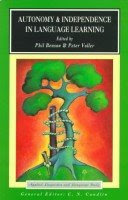 I've just been reading Shirley's blog post on Learner autonomy and tandem learning. I really like this comment:
I've just been reading Shirley's blog post on Learner autonomy and tandem learning. I really like this comment:Although learner autonomy means that learners should take control over their learning process, I think it does not mean that the role of teachers is no longer important.Peter Voller wrote an article in 1999, entitled 'Does the teacher have a role in autonomous language learning?' (in this book) and concluded that teachers have a very clear role to play, but a much different one to what they were used to. Voller describes two distinct roles for the teacher: facilitator and counselor. 'Facilitating' includes both psycho-social elements (like motivating learners) and technical elements (like assisting them in planning, monitoring and evaluating their learning process).
If you have any insights into how you might adopt these roles, especially using technological affordances, I would love to hear them. Feel free to post a comment.

1 comment:
In my experience, teachers usually recommend students to make use of some website for English learning. However, they often stop at informing students of useful links and are likely not to touch this topic any more in classroom. I think teachers can apply some online resources in class to arouse students' interest, appoint some extra resources for students to look, or listen, or read after class and then share their understanding or opinions over these materials at the beginning of next class. Teachers may also use some online materials for tests to motivate students to CALL. For example, teachers can urge students to practice listening with BBC & VOA and tell them at the beginning of a semester that some audio materials will be used as items in tests. Teachers may also asked students to keep a diary of what they've learned through CALL, such as vocabulary, and asked them in turn to edit a journal each week for distribution, or go through some important notes in class.
Post a Comment